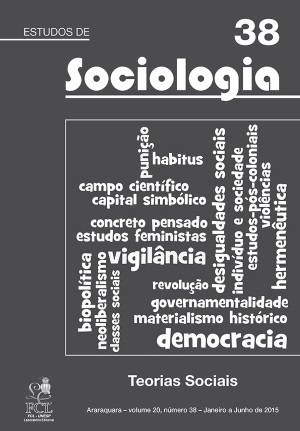Sociedade punitiva, morte e guerra: uma releitura a partir de Michel Foucault
Mots-clés :
Punição, Violência, Guerra, Biopolítica, Militarização,Résumé
No interior de um amplo debate sobre a crise da modernidade, emerge uma inquietação sobre a perda de referências e de retorno da violência como parte constitutiva da política contemporânea. Garland (2008) e Wacquant (2001) demonstram que há uma crise nos fundamentos dos sistemas penais contemporâneos, mas que estas mudanças ocorrem de forma concomitante com a expansão dos mecanismos de controle do crime que acarretaram o endurecimento da pena e a disseminação do controle social. Com base na constatação das mudanças recentes do sistema penal contemporâneo e do retorno da violência como mecanismo constitutivo da política, este artigo questiona até que ponto estes novos mecanismos penais podem entrar em contradição com a tendência à militarização da segurança? Ao lado disto investiga, fundado nas contribuições de Foucault, de que maneira esses mecanismos punitivos simbolizariam uma reaproximação entre as formas punitivas da modernidade em direção a biopolítica, ou mesmo da thanatos política? (AGAMBEN, 2004a). As estratégias punitivas estão encontrando sua ancoragem na guerra? E, neste sentido, o militarismo, como essência da exceção, potencializa a morte impune? A conclusão aponta para a constituição de um dispositivo de segurança que é também um dispositivo de morte.
Téléchargements
Téléchargements
Publiée
Comment citer
Numéro
Rubrique
Licence

À revista Estudos de Sociologia ficam reservados os direitos autorais pertinentes a todos os artigos nela publicados.
Os artigos publicados e as referências citadas na revista Estudos de Sociologia são de inteira responsabilidade de seus autores.
A Estudos de Socilogia utiliza a licença https://creativecommons.org/licenses/by/4.0/ (CC BY), que permite o compartilhamento do artigo com o reconhecimento da autoria.



